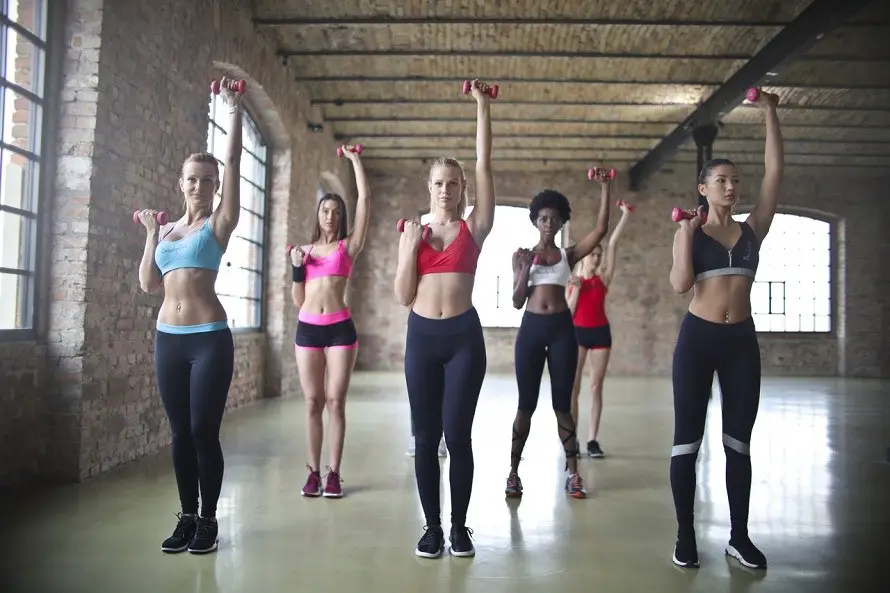Cross training is a vital strategy for the professional athlete as well as the weekend warrior. People who cross train are faster, stronger, and have better endurance than those who focus only on one form of exercise.
When athletes are choosing another exercise in which to cross train, there are many factors to take into consideration.
Exercises like swimming, Pilates, yoga, cross country skiing, cycling, and rock climbing all have serious benefits for the professional athlete. Julie Gagnon-Erickson, a Pilates and fitness trainer from Boston, explains the process of cross training and names its benefits for athletes of all kinds.

Fewer Injuries
When you use only one muscle group, you are more likely to put too much strain on it, causing injuries from overuse. Ligaments and joints can take a lot of punishment, but there is a point beyond which even the most seasoned athlete can’t push themselves any further.
Focusing on one type of exercise may mean that you experience soreness or tightness in your most used muscles. In extreme cases, these injuries can cause you to be sidelined from your preferred form of exercise.
Many professional athletes are prone to overuse injuries, from baseball pitchers to football players. Focusing on cross training, especially in the off-season, will help these athletes stay stronger and stay on the field.
Better Stamina
Together with building stamina, cross training also increases a person’s aerobic capacity. When athletes limit themselves to only one kind of activity, they are limiting their ability to grow.
Burnout is a real issue with athletes who do not cross train, but people who cross train are able to get through these problems and continue with their workouts. This can help a professional athlete develop the stamina needed to complete a grueling game or practice.
Increased Flexibility

When an athlete engages in cross training, he or she will have better flexibility. Stretching muscles, joints, and ligaments through more than one kind of physical activity means that an athlete’s overall flexibility will be improved. This can be especially helpful for professional athletes because a very high level of flexibility is necessary to perform their daily tasks.
Professional athletes are prone to strains and tears in their ligaments, but cross training and putting the proper structure behind the flexibility will keep all of these parts of the body limber and ready for anything.
Strength Training Benefits
One of the most important forms of exercise for all athletes is strength training. Most professional athletes do take part in strength training, but for those who do not, they should carefully study its benefits. Stronger arms and legs mean that an athlete will be able to endure longer and more intense workouts or games. Resistance training is a crucial part of the professional athlete’s training plan. It provides a large gain in performance for a relatively short period of time spent exercising.
Resistance training also increases an athlete’s resting metabolism. Every pound of new muscle burns calories while the body is resting. This makes it easier for athletes to lose weight and to change their body composition to remove excess fat.
Another great benefit of strength training for professional athletes is that it increases the density of the minerals in their bones. This is especially beneficial for women, since their vulnerability to fractures is much greater as they grow older.
Faster Healing
Since cross training benefits every part of the body, it makes sense that it would directly affect healing times as well. Cross training leads to faster healing times and protection against injury. When cross training, some exercises can directly benefit the areas which are overused and sore from the primary sport.
For example, if an athlete has a sore Achilles tendon, their condition can be eased by the strengthening of the calf muscles.
Better Mental Health and Wellness
Certain forms of exercise, like yoga and Pilates, can also have great benefits for the mind. The careful, meditative exercises help athletes clear their minds and deal with the stress of their demanding careers. Yoga and Pilates also help with flexibility and endurance as well as helping to reduce the chance of injury.
When athletes pay attention to their mental health, they are more likely to experience success in the field of sports.
Reap the Benefits of Cross Training
Any athlete, especially a professional, can benefit from cross training. The benefits range from better flexibility to faster healing and increased mental wellness. Julie Gagnon-Erickson encourages athletes of all kinds to build their strength and endurance through cross training.









































